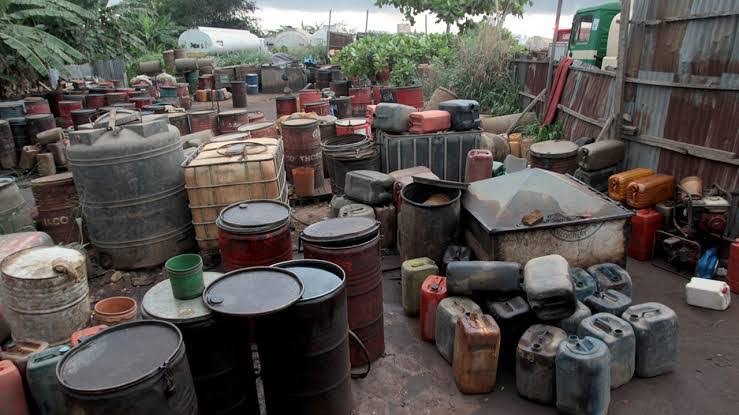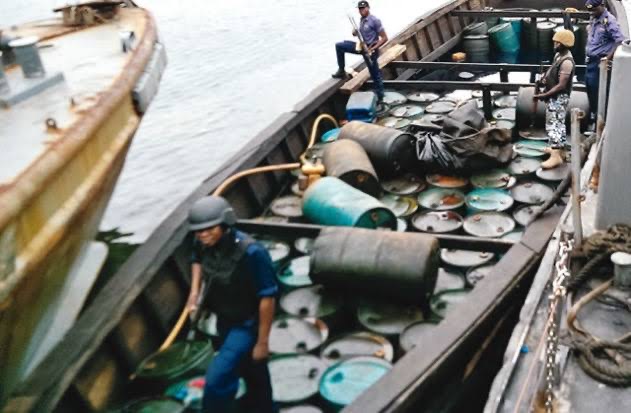The Nigerian National Petroleum Company (NNPC) has reported alarming figures regarding oil theft in the Niger Delta region. Between September 7 and 13, security teams uncovered 218 cases of oil theft, highlighting a persistent issue that affects the country’s economy and security. In connection with these incidents, 31 individuals were arrested, demonstrating a proactive response to a long-standing problem.
This information was presented in a detailed visual report by the NNPC, which plays a crucial role in managing Nigeria’s oil resources. The report emphasized that four illegal pipelines, which had been cleverly concealed and connected to an existing crude oil line, were discovered in Rivers State. These hidden pipelines represent a significant threat to Nigeria’s oil revenue, siphoning off valuable resources that should benefit the nation.

The NNPC’s findings came from various sources, including security agencies, the Tantita Security Agency, Shell Petroleum Development Company, Pipeline Infrastructure Nigeria Limited, Maton Engineering Nigeria Limited, and Oando PLC. The comprehensive nature of the report underscores the collaborative efforts among different organizations to combat oil theft, which has been described as a major challenge for the Nigerian economy.
The 218 incidents of oil theft were distributed across several corridors in the Niger Delta. Specifically, there were 32 incidents in the western corridor, 61 in the central corridor, 77 in the eastern corridor, and 48 in deep blue water. This distribution indicates that the problem is widespread and not limited to a single area, making it a complex issue that requires coordinated efforts to address.
The NNPC stated that the illegal activities conducted through these pipelines have a detrimental impact on the country’s finances. Oil theft not only robs the government of crucial revenue but also poses significant risks to the environment and local communities.

In addition to the economic consequences, these thefts can lead to oil spills and other forms of environmental degradation, affecting the livelihoods of those who depend on the land and water.
The report also mentioned that a total of 35 suspects were arrested during this period and subsequently handed over to government security agencies for further investigation. This step reflects the government’s commitment to tackling oil theft and holding those responsible accountable.
Mele Kyari, the Group Managing Director of NNPCL, has previously highlighted oil theft as a critical challenge for Nigeria’s crude oil production. He noted that these thefts contribute to reduced output and hinder the country’s ability to meet its oil production targets. The ongoing struggle against oil theft is not just a matter of law enforcement; it also requires systemic changes to improve the management of oil resources and increase transparency in the industry.
As Nigeria grapples with these challenges, the need for a comprehensive strategy to combat oil theft remains urgent. This includes enhanced surveillance, stronger legal frameworks, and greater collaboration between government agencies and private companies. Only through collective action can Nigeria hope to secure its oil resources and ensure that they are used to benefit the entire nation.



































